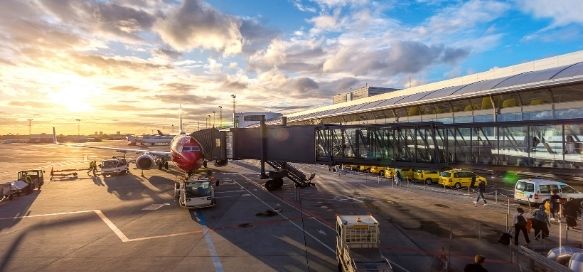The aviation industry was hit badly by the COVID-19 crisis and continues to suffer its ravages even now. Even though airlines have been allowed to operate again, the industry can expect to struggle under the impact of the changes effected by the Novel Coronavirus pandemic in the near future too. As the aviation sector looks towards achieving a recovery, it ought to base its recovery on a green and sustainable model which caters to the pressing demands of the climate emergency that our world is currently faced with.
The IATA has Confirmed its Commitment to Using Sustainable Fuels
The International Air Transport Association (IATA) has very recently re-emphasized its commitment towards reducing fuel emissions and employing sustainable aviation fuels (SAF), as it looks towards steering the aviation sector towards a revival. The IATA made this re-affirmation at the International Energy Agency’s (IEA) Clean Energy Transitions Summit held in Geneva. The IEA can use its influence and agency among its stakeholders to encourage sustainable aviation fuel production.
Investing into carbon reduction technologies and investing upon sustainable aviation fuel will not only help the industry sector realize its goal of cutting down its emissions to half by 2050 – it will also produce new jobs. The aviation industry has had to cut down jobs drastically due to the global pandemic lockdowns and the economic hardships suffered consequently. Millions of people employed at different rungs in the industry sector found themselves at the brunt of job cuts. Any creation of jobs in the industry space now will greatly serve these disadvantaged individuals, and our society at large.
The Crisis May Have Provided an Opportunity for the Aviation Industry to Re- model Itself
The COVID-19 pandemic created major disturbances in every industry sector globally. The aviation sector is no different. In fact, it was one of the more affected industry spaces. As governments around the world are spending enormously to revive these industries, the aviation sector could benefit from a conscious investment into greener and sustainable solutions to aid its operations. Currently, sustainable aviation fuel production in the world is considerably low for its usage to make any difference to the emissions produced by the aviation industry. If governments around the world, financers and small/large sized fuel producers joined hands to work towards ramping up SAF production – the aviation sector would benefit significantly.
Even if airline operators want to use SAF to reduce their carbon emissions today, not many are able to do so. It is because of the limited sustainable aviation fuel in production at the moment.
Besides planning for more fuel-efficient fleets that run on alternative fuels, the industry is also looking to create zero-carbon airports. Reduced taxiway times, using low carbon fuels for heating/cooling airport terminals and for providing on-stand power are some of the aspects that can be examined more thoroughly to make net zero carbon a reality in the industry space.
The Future will Be Net Zero Carbon
The aviation industry was forced to take an unplanned hiatus during the COVID-19 lockdown, like many other industries. While this spelled doom for the normal functioning of airlines and other regular activity in the sector, it also provided authorities in the industry space time to contemplate on how to prepare for its re-opening. Climate change is no longer an avoidable or remote truth. The aviation industry is a major contributor of carbon emissions to the world, and the pandemic lockdowns may have provided just the opportunity it needed to re-think its operations into making it greener and more sustainable.
Source – https://ramboll.com/ingenuity/four-focus-areas-for-the-aviation-industry-post-covid-19
https://www.iata.org/en/pressroom/pr/2020-07-09-01/
https://www.internationalairportreview.com/news/115337/covid-19-reset-aviation-more-sustainable/





